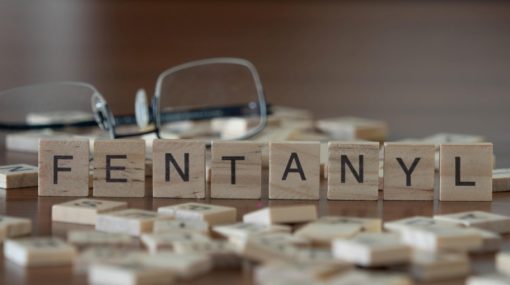Outpatient rehab is a flexible addiction treatment option that involves attending therapy at a clinic and then returning home during non-treatment hours. It’s a great option for people who want to continue working, attending school, or fulfilling other obligations while recovering from a drug or alcohol addiction.
Outpatient Rehab Overview
When you opt for outpatient rehab, you live at home throughout the duration of the program in which you attend scheduled counseling sessions at a facility. You may attend individual and group therapy, as well as various classes on relapse prevention and drug education.
Unlike inpatient treatment, which typically lasts from 30 to 90 days, you may attend an outpatient rehab program for far longer—for months or even a year. And research shows that longer bouts of addiction treatment are associated with better treatment outcomes.1 If you are struggling with a substance addiction but don’t want to put your life on hold during recovery, you may want to consider outpatient rehab.
Types of Outpatient Treatment
There are several types of outpatient addiction treatment programs, which vary in intensity and structure. These include:2,3
- Standard outpatient: Standard outpatient programs require that you attend therapy for a few hours per week, for one to two days per week. It’s the least intensive option and may be best if you have a mild substance use disorder or if you are transitioning from an inpatient program to step-down care.
- Intensive outpatient programs (IOPs): A step up from standard outpatient care, IOPs involve at least 9 hours of counseling per week, spread over three to five days. That said, some IOPs may offer up to 30 hours of treatment per week.
- Partial hospitalization programs (PHPs): The most intensive outpatient option, PHPs require a commitment of up to six hours of treatment per day, for a minimum of five days per week. PHPs serve as a great option for someone with a moderate to severe addiction who wants the structure of inpatient while still living at home.
If you or someone you know is struggling with an alcohol or drug addiction, we are here to help. Call our confidential helpline at 800-908-4823 (Who Answers?) to speak to a compassionate treatment support specialist who can provide you with rehab options.
Advantages
There are many advantages to choosing outpatient care, including:
- Flexible schedule
- Opportunity to continue working or attending school
- More affordable than inpatient rehab
- Don’t have to arrange for childcare or pet care
- Can stay in treatment for longer periods
Disadvantages
As with anything, there are also some disadvantages to opting for outpatient rehab over inpatient, such as:
- Less intensive care
- Less structure and routine
- Higher drop-out rate than inpatient
- Requires reliable transportation to and from the facility
- May be difficult if you don’t have a strong and sober support system
Due to the nature of outpatient care, you will likely still be exposed to drug-using triggers and stressors in your everyday environment, which could increase your risk of relapse. If you choose outpatient addiction treatment, be aware of these risks and make sure you engage in self-care practices and utilize your coping skills.
Outpatient Therapies and Services
Like inpatient rehab, the therapies and services offered at outpatient treatment vary from program to program. However, some commonly used therapies for addiction include:4,5
- Matrix Model: This therapeutic intervention combines many techniques, such as family therapy, group counseling, drug testing, relapse prevention classes, drug education, and self-help classes. It’s primarily used to treat stimulant addictions.
- Motivational interviewing: A short-term intervention aimed at improving patient motivation, readiness to quit drinking or using drugs, and desire to enter rehab.
- Multidimensional family therapy: This teen-focused therapy helps improve family functioning as well as address the underlying influences that lead to substance abuse. This is a great opportunity to heal from the harms of substance use and to improve communication and conflict resolution.
- Contingency management: You receive rewards, such as vouchers or prizes, for abstinent behaviors, which in turn encourages future abstinence from drugs and alcohol.
- Cognitive-behavioral therapy: A therapist helps you to understand the connection between your thoughts, emotions, and behaviors so you can replace maladaptive behaviors with healthy, abstinent behaviors. You also learn how to recognize, avoid, and cope with triggers.
Call 800-908-4823 Toll Free. Privacy Guaranteed. No Commitment.
Help is standing by 24 hours a day, 7 days a week.Who Outpatient Rehab is Best For
While anyone who is struggling with a substance addiction will likely benefit from an outpatient drug and alcohol rehab, it may be best for people who:
- Have a mild addiction
- Have a solid support system at home
- Have reliable transportation
- Have a high internal motivation to change
- Don’t have co-occurring mental health conditions or medical issues
- Don’t require 24/7 care and supervision
- Don’t need medical detox services
The best way to determine if outpatient addiction treatment is right for you is to receive an evaluation by a doctor or addiction specialist. Once they assess your addiction and mental health, they can refer you to the appropriate treatment setting. For help finding an outpatient treatment center, give us a call at 800-908-4823 (Who Answers?) . We are here to help you on your recovery journey.
Resources
- National Institute on Drug Abuse. (2018). Principles of Effective Treatment.
- National Institute on Drug Abuse. (2014). Treatment Settings.
- Center for Substance Abuse Treatment. Substance Abuse: Clinical Issues in Intensive Outpatient Treatment. Rockville (MD): Substance Abuse and Mental Health Services Administration (US); 2006. (Treatment Improvement Protocol (TIP) Series, No. 47.) Chapter 3. Intensive Outpatient Treatment and the Continuum of Care.
- National Institute on Drug Abuse. (2019). Treatment Approaches for Drug Addiction DrugFacts.
- National Institute on Drug Abuse. (2018). The Matrix Model (Stimulants).


